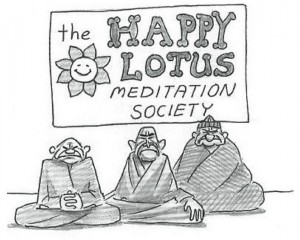What Should We Call God?
or
“What do you call somebody who is everything?”
To skeptics and atheists this may seem like an unnecessary or trivial question. But to the billions of believers and wishful thinkers or whatever we are, it sometimes feels terribly important. Despite Shakespeare’s contention that “a rose by any other name would smell as sweet”, names make a difference to us. If you had named your daughter Glunkworst instead of Ariele, a day may come when she would make you suffer for it. And it gets more serious than that. Religious wars have been fought over such matters, usually between fundamentalists whose interpretations of their respective scriptures are at variance.
Perhaps if we didn’t insist that our personal beliefs were so definitely correct, we’d all get along better. I cannot help but notice that fundamentalists of all persuasions, from Marxists to Materialists to Buddhists (yes there are Buddhist fundamentalists) tend to take their convictions terribly seriously. I mean can you point out to me a single joke in The Bible? Or the Koran, or Das Kapital for that matter? And I’m sorry to see not a single picture of Jesus laughing in our churches. Smiling kindly, definitely, but laughing out loud? Never. And you know what? I”ll bet that was edited out. In real life I’m sure Jesus laughed a lot. Can you really imagine a Messiah with no sense of humor? Fortunately this condition is not universal throughout the religious world. The Zen Buddhists and Taoist Masters seem to laugh a lot, and many yogis and sufis, and of course the inimitable Mullah Nasrudin.
What if what we believe is not as important as we imagine? When I was a kid I asked my mum whether or not she believed in God. She replied, “I don’t think it really matters much whether or not I believe in God. But I think it is really important that God believes in me.”
That really stuck in my mind.
When Ananda asked Buddha, who I’m told was almost as wise as my mother, “does God exist?”, Buddha offered no reply. So Ananda then asked, “so does God not exist?” Again Buddha did not reply. Philosophers have been trying to figure out what Buddha meant by this ever since. My understanding is that He did not reply to either question in order to avoid being misunderstood. God existing and God not existing are both mental concepts, neither of which are an accurate representation of the Truth. Unfortunately, it seems that Buddha’s attempt to avoid being misunderstood was also misunderstood. As He probably knew it would be…
The point is this. Whatever you think God is, that’s not it. All beliefs are limited mental constructs. God is, by definition, unlimited. As the creator of our minds, God is beyond our comprehension. In The Upanishads there is a verse describing how if you used the sky as your paper, a mountain as your pen, and the ocean as your inkwell, you could never describe the Supreme Being. Just as your computer cannot conceive of you, or the character in your dream cannot imagine who you are, Parama Purusa (now there’s a name of God I like – lit. Supreme Consciousness) is beyond human ken. Poor little Ken is just not up to the job.

Which leaves us where? Well to start with, since none of us can imagine God, we might as well stop pretending that we can, and then perhaps we could even stop fighting over it. And if we seriously want to understand God, I think there is no better place to start than taking a look at the source of our entire life experience – our own consciousness.
“If you want to know all, know one, and that one is your own inner I feeling.” – Shrii Shrii Anandamurti
If we really want to know God, we have to walk the path of the saints, yogis and mystics, who realized the Truth through inward prayer, meditation, service and devotion. If God is Love, we have to become Love. Then at last we will understand and try as we may, we will never able to tell anyone. Words will once again fail us. We may have to just laugh. Don’t worry your laughter will probably be misunderstood. But it will not matter – for no-one, not even Buddha or my mum, can explain the Truth to you. You have to realize it for yourself.
I sometimes feel sorry for God. Think about it. You have to be so perfect all the time, no-one understands you, most people only remember you when they’re in trouble or when they want something, no-one can figure out what to give you for your birthday, it’s almost impossible to get anyone’s attention and they keep writing humorless books about you. I’m just glad God is supremely patient, otherwise we might really be in trouble.

You want to know how I address I God? Call me sentimental, but I find “Supreme Macrocosmic Cognitive Principle,” a tad abstract. I need a name that I can snuggle up to at night – something that switches on my heart chakra. So I call Him Baba, which means beloved.
But that’s just me.


